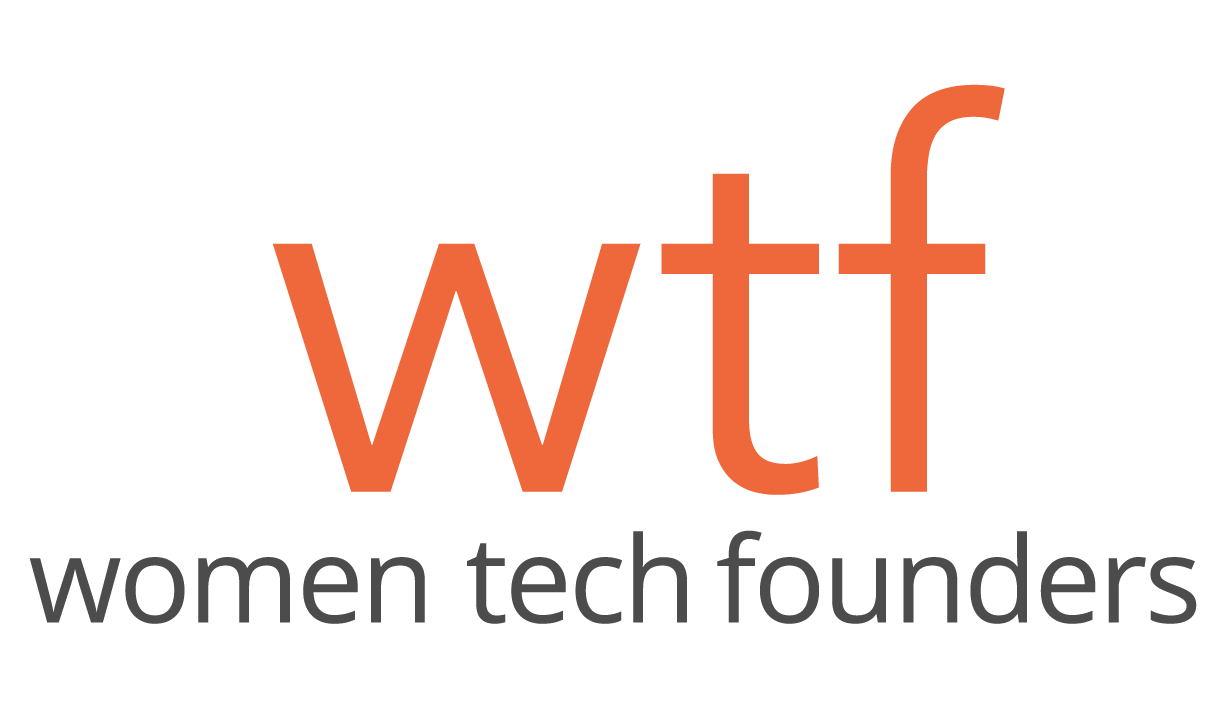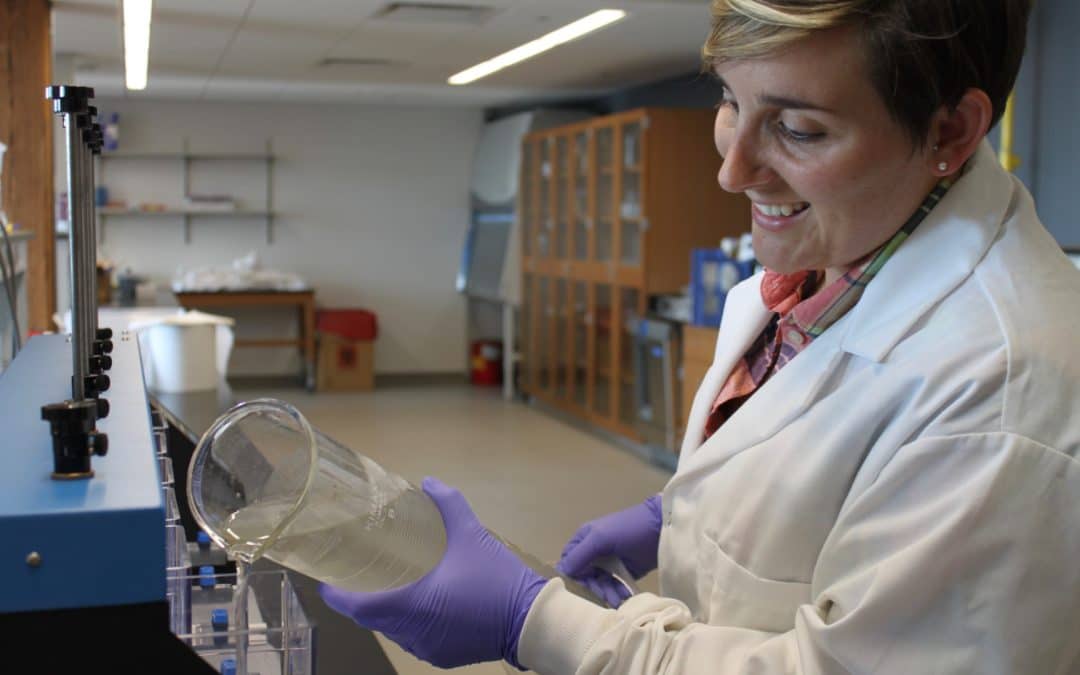Water: it’s something most of us take for granted because it’s always so readily available. And Rapid Radicals founder Paige Peters is making sure it stays that way.
“I knew that I found purpose in water, that it brought people together and that everyone needed it,” says Peters.
Peters graduated from Marquette University in 2011 with a degree in Civil Engineering, and she always wanted to find a way to use that to benefit the greater good.
When her undergraduate advisor, Dr. Daniel H. Zitomer, approached her about coming back to Marquette as a graduate student to work on a newly-funded project involving wastewater treatment, she jumped at the chance.
“The project itself was looking at using advanced technology for high-rate treatment during storm events,” says Peters.
“Especially in Milwaukee—and it’s also a huge problem in Chicago—you have these combined sewers that get storm water and sanitary water running in the same pipe. When the storm hits, those pipes fill up so quickly, that often it results in overflow and that untreated water starts flowing into lakes and rivers.”
Peters began her research in 2015 when she began her graduate program at Marquette.
“I spent a year evaluating some of the technologies, […] we wanted to be able to treat water to a high-quality level in 30 minutes—I wasn’t getting it in 30 minutes, but we had a good plan for the second year.”
With the help of resources and funding from the National Science Foundation Water Equipment and Policy Industry-University Collaborative Research Center, Peters and her advisor doubled their efforts.
“[We] were able to optimize all the research I had done in 2015, and mid-year 2016 it started working.”
After their success, and with the support of Dr. Zitomer and other resources, Peters founded Rapid Radicals Technology.
She says straddling the engineering and business side has been her main focus for the past year, in order to get the company off the ground.
“The honest answer is that I never, in a million years, thought that I would have a company. But, one thing that I have realized is […] that I feel like I have always had an entrepreneurial mindset. The push to be more, to do more, to challenge the norm, to create your own path and to use that passion to either build something that doesn’t exist […] that’s always been a part of me.”
Peters has been able to grow the business little by little, and has brought on employees to help with the business development of Rapid Radicals Technology.
“I’m so grateful for the opportunity to build a vision, and to give that opportunity to other people and show what engineers can do, too.”
But changing the mindset of those in the engineering world is not always an easy feat.
“I feel naïve about how the industry perceives start-ups—especially in the environmental and civil industry. There is a lot of old mindsets that are difficult to shift, and is not known for making changes quickly,” Peters states.
“The solution is not going to be to rip it up and put [something] new in—you can’t keep having the same thing happen and expecting the tech that is 100 years old to work … We have to be innovative.”
The next step, according to Peters, is to show people why that innovation will be beneficial in the long run.
“We can do it. We can change the standard. It’s interesting because it’s two different worlds, and they operate at two different frequencies. Academia operates a little slower, a little more deliberate, and a little more private,” Peters states.
“The start-up world is fast-paced and is also a lot more vulnerable—you’re allowed to admit failures in the entrepreneurial world … Tt’s like a celebrated thing, which is really different from academia,” she says with a laugh.
“It’s awesome, and I feel like that’s what makes a productive space.”
While funding is often a challenge for many entrepreneurs, Peters and her team have also been dealing with making a case for going above and beyond city regulations to make water safer.
“People are saying, ‘Well, we have all these other things we could be doing that are cheaper, and since we don’t have to meet these standards, why don’t we just use those? My response is that’s not always the solution because these overflows and these back-ups happen and we have to be looking ahead to new things,” she says.
But the response from the public seems to be gaining positive traction.
“There are three applications for the technology from a municipal standpoint for cities, which is to add a treatment plant to reduce overburden during a storm, add a watershed to a location that’s prone to having overflow, and then treat it, as it would be otherwise flowing into the river untreated.”
“I think people are generally excited about it […] but there’s a little bit of resistance that says, if regulation doesn’t require it, what’s the value to it? We fight every day to say this is what’s valuable.”
Peters says that while Rapid Radicals is showing why wastewater treatment is necessary, it does not come without its criticisms. The most important way to overcome that hurdle? Use your resources.
“I knew from the beginning that there was no way I was going to be able to do this by myself. Some days I really felt like I was […] but I would seek out advice from as many people as possible [through Marquette and University of Wisconsin – Milwaukee],” says Peters.
“What I found in doing that was support, just constant support from everyone that I talked to […], and that part has really surprised me.”
In such a male-dominated field, Peters says the biggest challenge was really proving herself.
“I felt that everyday, that I had to prove my technical worth. I am grateful that in my network there are a lot of females who are in the position, who make connections for me, and the familiarity of that makes it easier for people in my shoes.”
Ultimately, Peters says that the most important thing is to be working with passion and intention – something that has gotten her very far in her entrepreneurial journey, and in life.
“One piece of advice, and a compliment that I’ve always received, is that my enthusiasm and my passion always come through. The response I get for being such an enthusiastic person has shown me that there is merit in your passion,” Peters states.
“I wake up every morning with equal parts feeling of gratitude and just like being totally overwhelmed but I’m okay with that—It sounds like a way to get the most out of life.”
And of course, Peters states it never hurts to be open-minded along your entrepreneurial journey.
“Previous to being an entrepreneur, I would have heard all that [advice] and said, ‘No, no, no, that’s not the application. But within the last year of being very humbled of all the newness of being an entrepreneur has been for me […] and I was like, you’re right, I’m not thinking out of the box as much as I should.”
“That’s what we want to be doing, we don’t want to create one thing that works one time, we want to create one thing that works for whatever people need it to. It’s made me even more of a “yes girl.””
Peters says the goal of Rapid Radicals Technology moving forward is to keep growing the business, with the hopes of having several pilots in place by 2020.
“Something like this is always subject to if funding is available, or someone’s perspective that something like this really matters. [It’s important] to hold your ground and remember that at the end of the day, if we can get one of these out there and we can change a couple people’s lives, and we can prove that you can build something from scratch—that’s successful to me.”
Photo Credit (Paige Peters): Peters works on testing for Rapid Radicals Technology, LLC.

